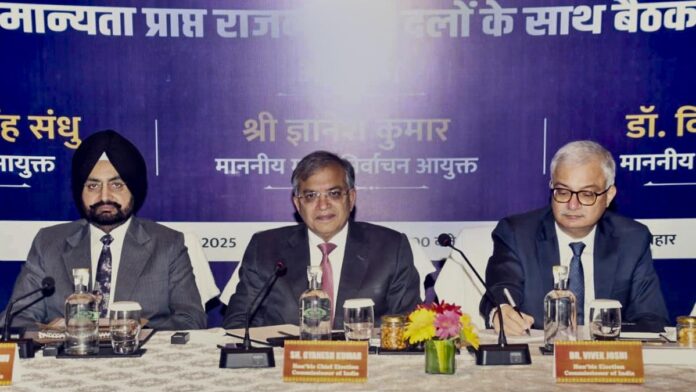In a rare display of unity, political parties in Bihar have expressed broad consensus in favor of limiting the upcoming state elections to a maximum of two phases. The agreement, voiced across party lines, reflects a shared concern about the prolonged election schedule that often stretches over several weeks, straining resources and disrupting public life.
Leaders from both ruling and opposition parties highlighted that extended polling not only burdens the state machinery but also heightens security challenges and creates prolonged uncertainty. By condensing the election process into one or two phases, they argue, voters would benefit from greater convenience, reduced fatigue, and a more efficient democratic exercise.
Representatives of major parties—including the JD(U), RJD, BJP, and Congress—are understood to have conveyed their position to the Election Commission, urging it to consider Bihar’s unique logistical landscape. While acknowledging the need for adequate security arrangements across the state’s diverse districts, leaders stressed that technological advances, improved administrative capacity, and better coordination between central and state forces now make a shorter election timeline feasible.
The consensus comes against the backdrop of Bihar’s historical experience with staggered elections, sometimes held in up to five phases due to security concerns and logistical constraints. Critics say such drawn-out polling often shifts the focus from governance to campaign rhetoric for extended periods, while also exposing the process to allegations of undue influence and fatigue among voters.
Observers note that the convergence of opinion among Bihar’s fractious political class is significant. While rivalries remain sharp on policy and leadership issues, the willingness to agree on electoral reforms points to a shared recognition of the need for smoother democratic processes.
The final decision rests with the Election Commission of India, which will weigh the feasibility of compressing the polls into fewer phases while ensuring free and fair voting across the state. If accepted, Bihar could set an example for other large states where long-drawn election calendars have been a recurring feature.
For now, the cross-party consensus has sent a signal that, despite deep political divides, there is space for collective action when it comes to strengthening the mechanics of democracy in one of India’s most politically active states.



